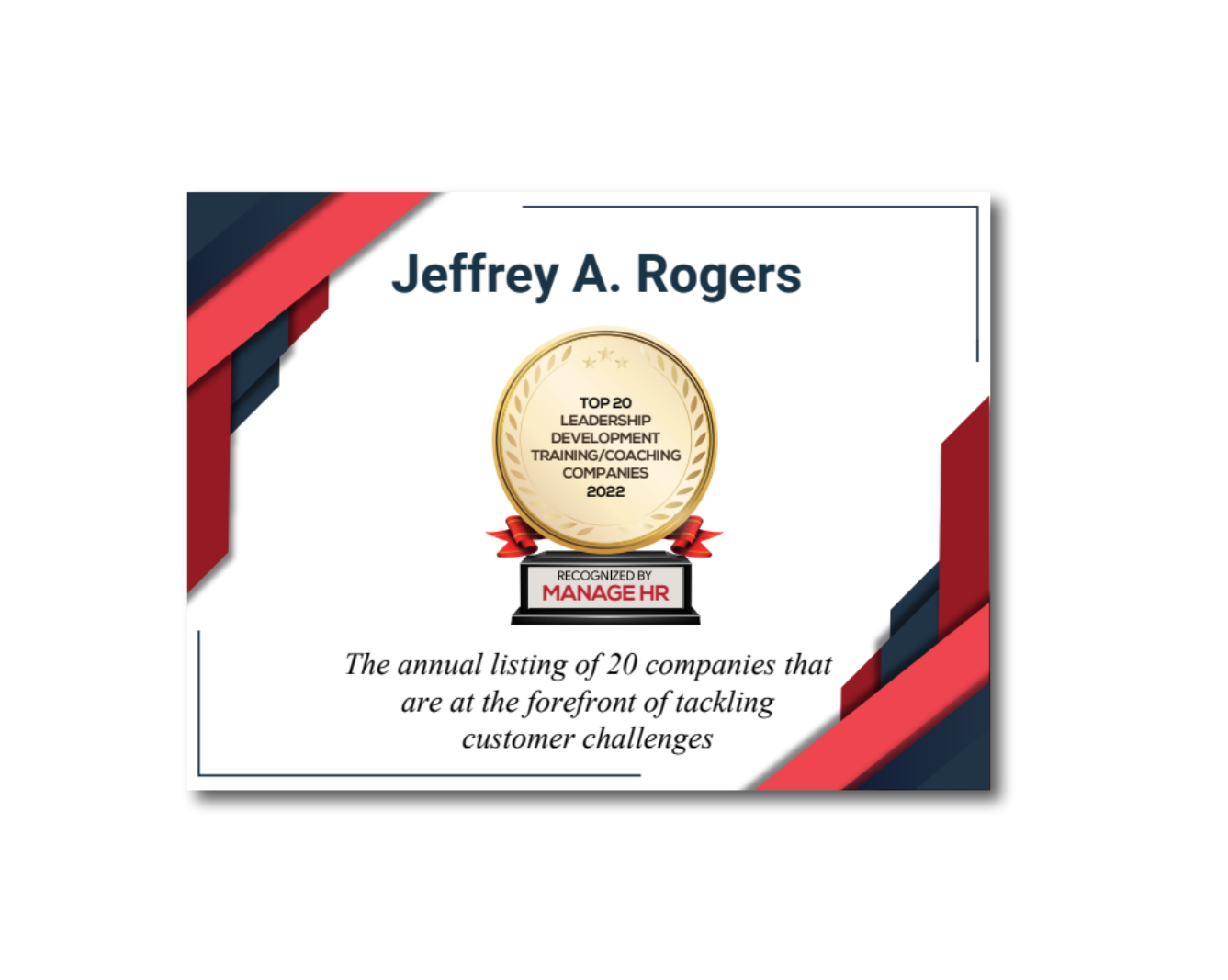10 Compelling Reasons to Develop Your People (a wise investment, indeed!)

Statistics share facts and essential truths, and the truth is that we should all invest in our people!
We, at JRCI, often learn of problematic situations, errors made at various levels, lost clients, tempers flared, and matters we wish we could have a "Do Over." With simple investments in structured, solid training for our people and teams, many of these self-inflicted wounds could never have happened in the first place.
After reviewing these statistics below, we surmise this is serious business:
Truth #3. Lack of Career Development is overwhelmingly why most employees leave their jobs. -Work Institute 2017
83% of Millennials are more likely to remain loyal to an employer when they feel they can make a positive impact. -Cone Communications 2016
92% of CEOs and CFOs believe that improving corporate culture improves the value of the company. -Boston College Center for Corporate Citizenship 2015
78% of employees are more willing to work beyond designated hours when they feel valued and fulfilled in their work. -Cone Communications 2016
More than 83% of employees leave their jobs due to poor managerial performance. The average cost of employee turnover is $15,000 at minimum. -Work Institute 2017
At JRCI, we understand these vital statistics and develop relevant training for all levels in your flowcharts. None is more impactful than training for your supervisors and managers. These critical positions impact your company, team, and customer. We must support this tier with training and development and let them know we have their backs!
Why is Professional Development and Training Important to Me?
We did even more research and found a few items you may find helpful. Here are some benefits companies who invest in their people earn.
- Improved Performance: Managerial Training enhances the effectiveness of managers. They become better equipped, set clear goals, improve feedback, and make more informed decisions.
- Increased Employee Engagement: Investing in managers fosters a better work environment where your people feel more valued, cared for, and empowered to do their jobs better.
- More decisive Leadership: Managerial training develops more substantial leadership qualities. By developing your leaders, companies build robust talent pipelines and succession plans and equip the organization for future growth.
- Improved Talent Retention: Providing growth opportunities demonstrates your managers matter. This commitment to employee development increases loyalty, reduces unnecessary turnover, and helps retain your top people. This combined effort reduces costly recruiting and improves profitability.
- Creates Strong Competitive Advantage: Organizations investing in their people compete better. Developing edge-improving skills creates opportunities to drive innovation, navigate challenges, capitalize on opportunities, and evolve profitably. Your well-trained managerial workforce allows your organization to elevate above your competitors and maintain relevance.
There are a few reasons why any organization in any industry should invest in training and development for their people, specifically their managers. We haven't yet discussed adapting to today's competitive work environment. Becoming a more critical and strategic thinker, looking downfield, and getting three steps out in front of the team. Or demonstrating strong emotional intelligence. There is more, but we trust you get the idea by now.
How Do I Ask for Managerial Training Budget?
As a manager, a great way to ask for support, training, and professional development is to emphasize the benefits the investment will bring to organizational success. You might outline the specific training program, the relevance to your role, and the benefits you, your team, and the organization will gain as a result. Describe how the training will benefit the company, the team, and the customer, and be specific!
Additionally, describe how these new skills and knowledge will contribute to achieving departmental goals and profitability. What might the ROI of this investment look like to upper-level decision-makers? How will this training affect efficiencies, communications, time management, enhanced productivity, team engagement, and the bottom line?
As a manager, you might even submit a clear budget-type proposal, indicating that you have thought this through properly. Most importantly, demonstrate you are committed to applying newly acquired skills and knowledge to the company, team, and customer, making this a worthy investment.
Approaches to Request Managerial Training
You might try to ask for professional managerial training and development in one of these ways:
- Direct Request: As a manager, you can simply approach senior leadership or HR with your request and ask. Following the suggestions above, frame it like this. "I believe I am ready for professional development and managerial training. I'd like support enhancing my leadership abilities, and the benefits will be well worth the investment. Here is why…"
- Self-Assessment Discussion: As a manager, your job is to be proactive. Therefore, self-assessment and demonstrating your willingness to grow professionally is vital for success. You might discuss the value of improved communications, team engagement, and retention and elevate performance and productivity as starters for the conversation. Everyone wins.
- Performance Review Discussion: Take advantage of this opportunity and ask for professional development and growth. Any organization would be excited that their supervisors and managers are looking to improve their work. Be proactive, frame the benefits of the developmental investment, and grow as an organization.
However you ask for professional training and development as a manager, everyone wins together! A senior leader in any organization would be thrilled to learn that their manager wants professional development and training to get better at what they do. Enhanced leadership skills, improved performance, better communication, team development, better customer interaction, and satisfaction are a few of the benefits you will provide with your ROI.
Reasons to Invest In Professional Training and Development
We have now briefly framed the organizational benefits of investing in training and developing people in an organization. But we promised you 10 compelling reasons to invest in and develop the talent in your organization.
Here is a difficult fact, and we saved it for last: if you do not invest in your people, other organizations will in today's highly competitive work environment.
Top talent wants to improve, and they will, with or without you. This, too, is a statistical fact. The ROI is tremendous. Invest in your people today. Let them know how much you care about and value them and their contributions to the organization.
JRCI 10 Reasons to Invest In Professional Training for Managers
- Leadership Development
- Performance Improvement
- Communication Skills
- Conflict Resolution Skills
- Decision-Making Ability
- Adaptability
- Emotional Intelligence
- Change Management
- Sustainability
- Personal Growth
Invest in Professional Training and Development Now!
Providing professional training and development has a strong ROI. The statistics prove it, which is a wise investment in your people. How can you go wrong by bringing attention to opportunities to improve the above information?
Investing in your people and success is proactive behavior, and most are reacting to today's changing marketplace. Talk about competitive advantage and edge development; it is for you and the team.
High-performing teams do not happen all by themselves. They are developed and nurtured with care and strategy. Build resilient, agile, high-performing teams in your organization now, and you will be glad you did.



